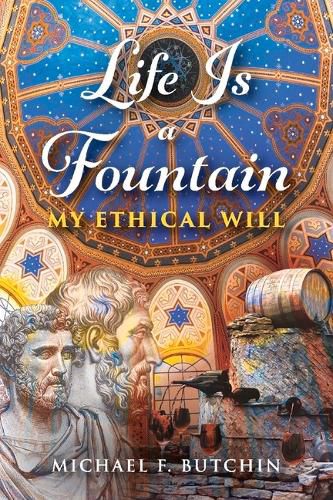Readings Newsletter
Become a Readings Member to make your shopping experience even easier.
Sign in or sign up for free!
You’re not far away from qualifying for FREE standard shipping within Australia
You’ve qualified for FREE standard shipping within Australia
The cart is loading…






Life Is a Fountain is a captivating collection of meditative essays written upon quotes commonly attributed to Epicurus, Marcus Aurelius, Seneca, and others. Also included is a collection of essays, reflecting the author’s opinions on various subjects from popular culture, to politics, to religion, and similar relevant topics. The book is meant to be read as an Ethical Will. An ethical will is a document that passes down lessons one has learned from Life, the ethical values acquired, advice, injunctions to the next generation, and sometimes personal reminiscences. Ethical wills are very personal, and are meant to be transmitted from one generation to the next. Rabbis and Jewish laypeople have composed ethical wills from ancient times, the forms and purposes changing over time; but the contemporary styles we recognize today were developed in the nineteenth and twentieth centuries.
$9.00 standard shipping within Australia
FREE standard shipping within Australia for orders over $100.00
Express & International shipping calculated at checkout
Life Is a Fountain is a captivating collection of meditative essays written upon quotes commonly attributed to Epicurus, Marcus Aurelius, Seneca, and others. Also included is a collection of essays, reflecting the author’s opinions on various subjects from popular culture, to politics, to religion, and similar relevant topics. The book is meant to be read as an Ethical Will. An ethical will is a document that passes down lessons one has learned from Life, the ethical values acquired, advice, injunctions to the next generation, and sometimes personal reminiscences. Ethical wills are very personal, and are meant to be transmitted from one generation to the next. Rabbis and Jewish laypeople have composed ethical wills from ancient times, the forms and purposes changing over time; but the contemporary styles we recognize today were developed in the nineteenth and twentieth centuries.